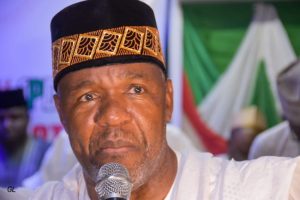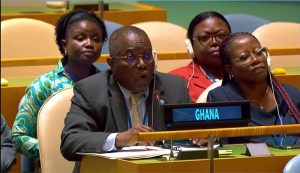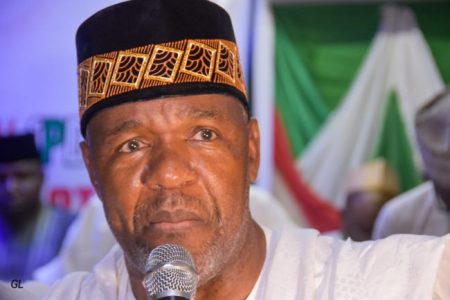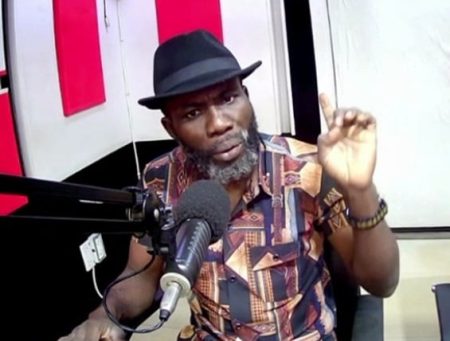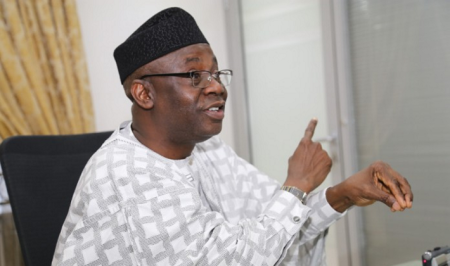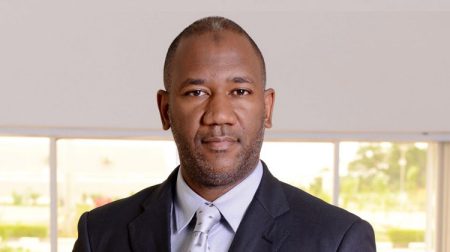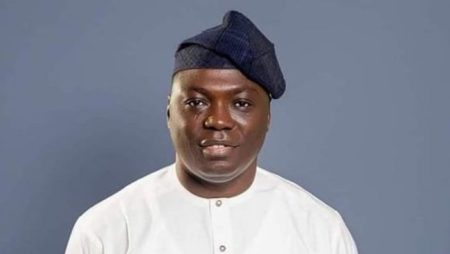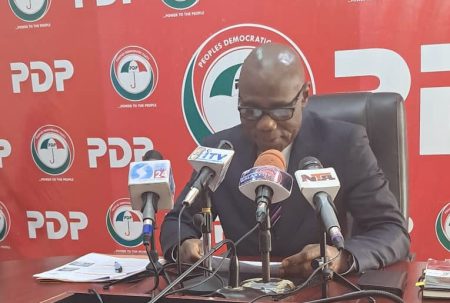The African Democratic Congress (ADC) has vehemently condemned the travel restrictions imposed on Peter Obi, the presidential candidate of the Labour Party (LP), by Edo State Governor Godwin Obaseki. The ADC characterized the governor’s action as an unacceptable infringement on Obi’s fundamental rights and a blatant attempt to stifle political discourse. They argue that such restrictions undermine the democratic process and set a dangerous precedent for limiting the free movement and association of political figures. The party emphasized that in a democratic society, all citizens, especially political leaders, should be afforded the freedom to move and interact with the electorate without undue interference from the government. The ADC called on Governor Obaseki to immediately rescind the travel ban and ensure that Peter Obi is allowed to exercise his political rights unhindered.
The ADC’s condemnation is grounded in several key concerns. Firstly, they argue that the travel restrictions are a clear violation of Obi’s constitutional right to freedom of movement. This right, enshrined in the Nigerian constitution, guarantees every citizen the liberty to move freely throughout the country without unreasonable limitations. By preventing Obi from traveling within Edo State, the governor’s action contravenes this fundamental right and sets a worrisome precedent for future government actions against political opponents. Secondly, the ADC contends that the travel ban represents an attempt to suppress political opposition and limit the free exchange of ideas. They argue that such restrictions create an uneven playing field and hinder the ability of opposition parties to effectively campaign and engage with the electorate.
Furthermore, the ADC highlighted the potential for such actions to escalate political tensions and create a climate of fear and intimidation. Restricting the movement of a prominent political figure like Peter Obi, they argue, could incite unrest and undermine the peaceful conduct of elections. They emphasized the importance of fostering an environment conducive to free and fair elections, where all candidates can freely participate and express their views without fear of reprisals. The party called on all stakeholders, including the Independent National Electoral Commission (INEC) and civil society organizations, to condemn the travel ban and defend the principles of democratic governance.
The ADC’s statement also underscored the importance of upholding the rule of law and respecting constitutional provisions. They argued that Governor Obaseki’s actions not only violate Obi’s fundamental rights but also disregard the principles of separation of powers and the independence of the judiciary. The party maintained that the governor does not possess the legal authority to impose such restrictions on a citizen’s movement, and that any legitimate concerns regarding security or public order should be addressed through legal channels and due process. They called on the judiciary to intervene and ensure that constitutional rights are protected.
The party also drew parallels with historical instances of political repression, warning that the current situation echoes past attempts to suppress dissent and stifle democratic freedoms. They emphasized that the lessons from Nigeria’s past should serve as a reminder of the dangers of unchecked executive power and the importance of safeguarding fundamental rights. The ADC called on Nigerians to be vigilant and resist any attempts to erode democratic values and institutions. They emphasized the collective responsibility of citizens to defend the principles of fairness, justice, and accountability in governance.
In conclusion, the ADC’s strong condemnation of the travel restrictions on Peter Obi reflects their deep concern about the potential repercussions for Nigeria’s democracy. The party’s call for the immediate reversal of the ban underscores the importance of upholding constitutional rights, promoting free and fair elections, and ensuring a level playing field for all political actors. Their statement serves as a reminder of the fragility of democratic institutions and the need for constant vigilance to protect them against any form of infringement. The ADC’s stance emphasizes the crucial role of citizens, civil society organizations, and the judiciary in safeguarding democratic values and holding government officials accountable for their actions. They urged all stakeholders to unite in defending the principles of a free and democratic society.


